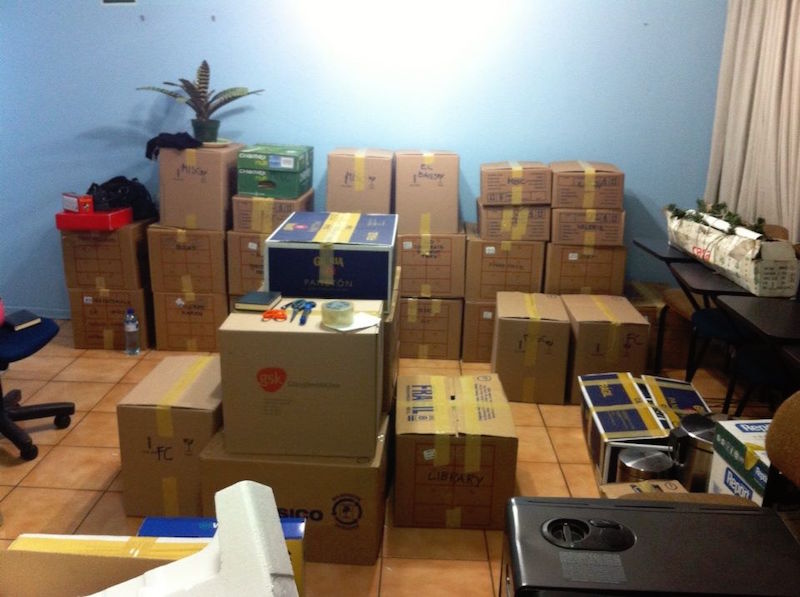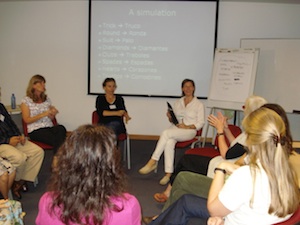
Claudiaexpat draws from her personal and professional experience to explore the differences between cross-cultural training and coaching, and how to use both to assist expats in their transitions.
When I landed in Peru in 2003 my two children were 7 and 12 and I started regaining control of my time. Behind me was a life of mixed working experiences – interpreter in Italy, humanitarian worker in Sudan and Angola, translator in Guinea Bissau and Congo – and several years as a full time mother.
In order to take up a professional life again, I did what every good coach suggests: I started by listing my passions and skills. It quickly became clear to me that what I was a champion at doing (relocating) combined with my passions (people + communication) had to lead me to a work connected with supporting the expat community. That’s how Expatclic was created – a fantastic, long lasting, creative and humanly exciting adventure – and how I decided to become a cross-cultural trainer.
Employers who pay for such a training course show respect both for the persons that are sent abroad, and for the culture that hosts them.
Accompanying spouses are typically charged with a two-pronged task: learning how to function in a new culture, while at the same time maintaining a good personal balance to help the family settle down as best it can. Lack of proper directions makes the process even more difficult, and its complexity is rarely recognized. Indeed, foreign assignment contracts pay more attention to salaries and practicalities like schools, housing, transports and summer leaves, but rarely to the psychological effects of having to adapt to an unknown world.
A good cross-cultural training course also provides a balanced kit of information about the new culture, which can appease the anxiety that stems from having to start functioning the moment one lands in the new country.
Mobile families go through very precise steps and take on classical roles when relocating: typically fathers go out to work, children are off to their new school, and mothers are left at home organizing the practical, affective and social structure needed for the family to exist in the new context. Building this structure can prove very difficult when mothers strive to detect new codes, rules and behavioural patterns. Getting to know a new culture and learn to live within it is difficult for everyone, but especially for mothers, who also have to find their own channels to be part of the new reality and to go through the learning process.
 Through my workshops and individual training sessions in Peru, I found out that taking a moment to stop and reflect on the mechanisms the intercultural encounter involves, is hugely beneficial to the adaptation process. Becoming aware of concepts like personal and collective identity, hidden and visible values, cultural misunderstandings, culture shock and ethnocentric judgement, not only speeds up the adaptation process but also gives a broader view and perspective of the rich possibilities cross-cultural relations entail. Employers who pay for such a training course show respect both for the persons that are sent abroad, and for the culture that hosts them.
Through my workshops and individual training sessions in Peru, I found out that taking a moment to stop and reflect on the mechanisms the intercultural encounter involves, is hugely beneficial to the adaptation process. Becoming aware of concepts like personal and collective identity, hidden and visible values, cultural misunderstandings, culture shock and ethnocentric judgement, not only speeds up the adaptation process but also gives a broader view and perspective of the rich possibilities cross-cultural relations entail. Employers who pay for such a training course show respect both for the persons that are sent abroad, and for the culture that hosts them.
Many can live in more than one foreign country without necessarily grasping the dynamics involved in cross-cultural relations. A good training course gives you the opportunity to learn how to master those dynamics, thus overcoming the typical feelings of isolation that accompany relocations. A good cross-cultural training course also provides a balanced kit of information about the new culture, which can appease the anxiety that stems from having to start functioning the moment one lands in the new country.
…the most common problems my clients wanted to discuss revolved around a loss of personal and professional identity after following husbands and partners all over the world.
A cross-cultural training course though might not always be the most suitable or only tool to help expats. I came across many women who were facing problems not necessarily related to relocation per se. Having unresolved issues like power balance in the family, professional identity, economical independence, can come to light more strongly in one country or another, or in a particular moment of personal life (a pregnancy, a disease, empty nest, etc.). For these women a cross-cultural training course would only circumvent the core of their issues in that it does not focus on individual persons but on culture – how to approach it, how to feel it, how to discover its elements and deal with them. While all this undoubtedly has beneficial results on the overall process of adaptation, it can do little to touch the core of the most intimate feelings related to issues like family roles, career, self-esteem and professional future. That’s where coaching comes in.
Sometimes all expats need is to realize that a personal problem is in fact caused or magnified by the impact with the host culture.
When I started my training as a coach, I did a lot of pro bono sessions and I was not surprised to realize that the most common problems my clients wanted to discuss revolved around a loss of personal and professional identity after following husbands and partners all over the world. This is obviously tightly connected to the overall issue of crossing cultures – if these women were not mobile, they could cultivate a steady and regular career, or at least develop a diversified one in the framework of a stable cultural context. Whereas cross-culture training courses start from the concept of a collective culture and address to individuals, coaching begins the journey focusing on personal histories and situations, and harmonizes them across the various cultures they get in contact with. It is a basic difference that can help trainers and coaches provide expats with the right kind of assistance.
With time I have learnt to soften the borders between cross-cultural training and coaching, using some elements of my workshops during individual coaching sessions, and vice versa. Sometimes all expats need is to realize that a personal problem is in fact caused or magnified by the impact with the host culture, or that what they believe are blockages in feeling comfortable in the new country stem from a more intimate and personal issue. Helping them understand the real reasons behind the feelings caused by their mobile lives is a huge step ahead to identify how to work on them. When expats are happy in their personal lives, they are able to positively relate to local culture. In the same way, understanding the local culture and being able to be happy in it has a positive impact on their personal lives. It’s a virtuous circle that encompasses basic human feelings and values that make it possible to achieve the best in the wonderfully meaningful life spent across different cultures.




